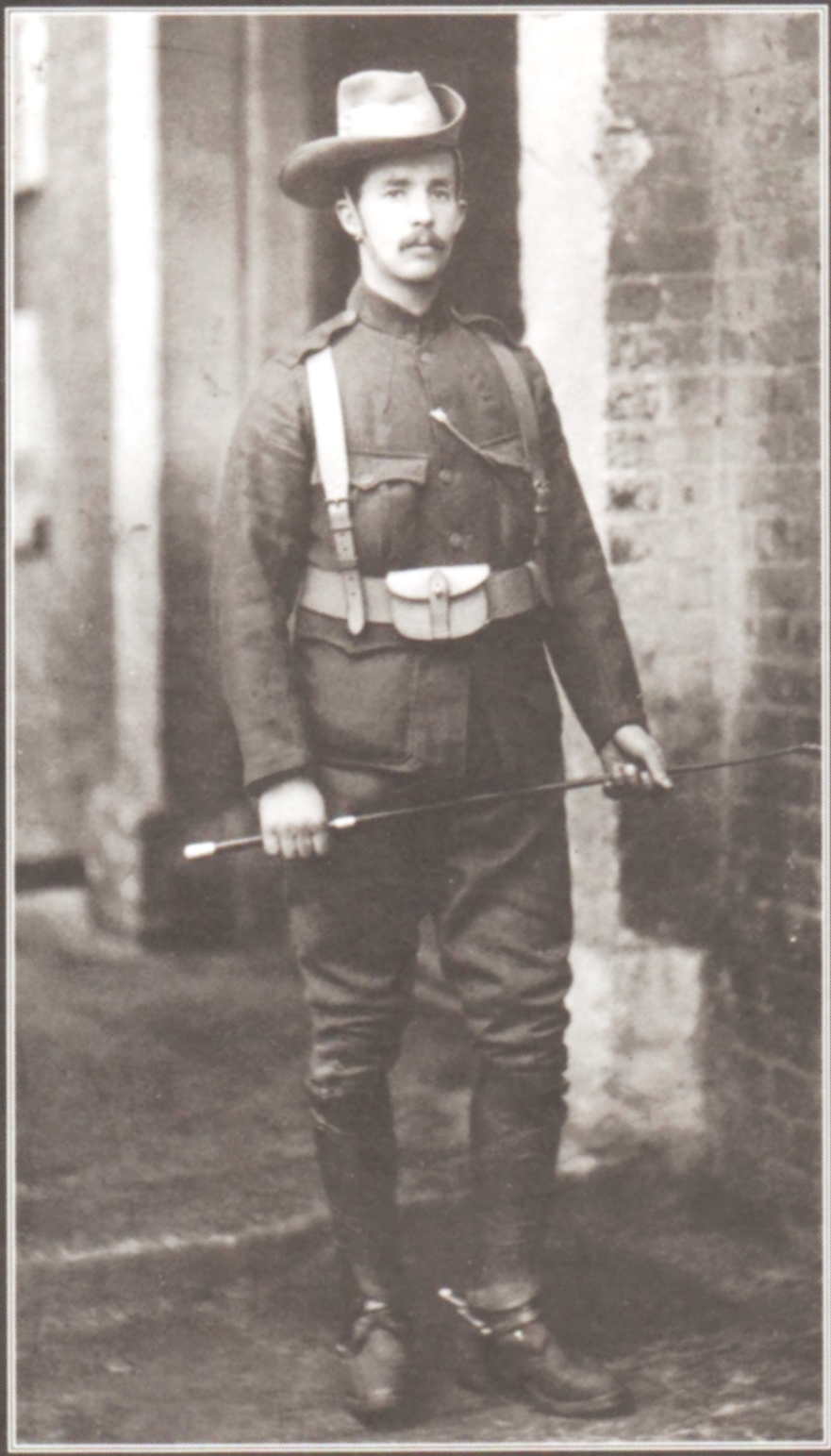Robert Erskine Childers
Robert Erskine Childers (born June 25, 1870 in Glendalough , † November 24, 1922 in Dublin ) was an Irish writer , politician and prominent supporter of the Irish independence movement.
Life
Childers was the the son of Indian studies Robert Cesar Childers and nephew of the politician Hugh Childers in an educated Protestant , British -Irish family born. Orphaned early, Erskine Childers grew up with an uncle in County Wicklow . He later studied at Trinity College , Cambridge and then worked in the British House of Commons as a clerk from 1895 . He was an avid ocean sailor, owned several boats and went on extensive sailing tours in the North Sea , Baltic Sea and Atlantic .
In 1899 Childers - at that time still a supporter of the British Empire - volunteered for the Boer War , in which he was seriously wounded as an officer and had to return to Great Britain as an invalid. Once there, he wrote his famous novel The Riddle of the Sands (German: Das Rätsel der Sandbank , more recent translation: Das Rätsel von Memmert Sand ), which was published in 1903. In it he prophesied a war with the German Empire and a sea landing of troops on the British coast. The book was so haunting that, according to Winston Churchill, the British Admiralty had naval bases established in Invergordon , Firth of Forth and Scapa Flow . The novel is considered to be the first modern spy novel .
In the following years he wrote numerous military books that critically examined British strategies and tactics. At the same time, Childers became an ardent supporter of the Irish independence movement and a radical advocate of the Home Rule League . Just a few days before the outbreak of the First World War, he and his wife smuggled German weapons into Ireland, which were then used to support the Easter Rising in 1916 .
Act
During the First World War Childers served as an officer in the Royal Navy on the North Sea and the Dardanelles . Childers was promoted to Lieutenant Commander and was awarded the Distinguished Service Order . By the bloody suppression of the Easter Rising in April 1916, he was radicalized again and joined the Sinn Féin around Éamon de Valera and Michael Collins . During the Versailles treaties he represented the Irish nationalists and became the press spokesman for the newly formed Irish parliament . He also wrote numerous essays in which he sharply criticized the British policy on Ireland and the Prime Minister David Lloyd George . In 1921 he was elected as a Member of the Irish House of Commons Dáil Éireann for County Wicklow.
Childers, although he was initially head of the Irish delegation, rejected the Anglo-Irish agreement of December 6, 1921, which led to the formation of an Irish Free State from. In particular, the still existing constitutional connection to the United Kingdom and restrictions on powers and sovereign rights were the main points of criticism that led to the split in the Sinn Féin: The Cumann na nGaedheal , who stood for the treaty, ultimately stood for the radical republican majority of the Sinn Féin and the IRA in the Irish Civil War opposite, which was run from June 1922 to April 1923. He was then hunted down by the soldiers of the Irish Free State as a mastermind of opposing propaganda and finally arrested in Glendalough. On November 24, 1922, Childers was executed by firing squad at the Beggar's Bush Barracks in Dublin . His last words were: "Take a step forward, lads. It will be easier that way." ("Take a step forward guys. This will make it easier.")
His son, Erskine Hamilton Childers (1905–1974), was the fourth President of the Republic of Ireland from 1973 until his death in 1974 . His cousin Robert Childers Barton was a well-known Irish politician and was one of the signatories of the Anglo-Irish Treaty of Independence, which ultimately meant the partition of the island.
Film adaptations
- 1978: In Nacht und Nebel ( The riddle of the sands )
- 1987: The Riddle of the Sandbank TV series
Web links
- Literature by and about Robert Erskine Childers in the catalog of the German National Library
- Works by and about Robert Erskine Childers in the German Digital Library
- The Riddle of the Sands . Full text (English) at Project Gutenberg
Individual evidence
literature
- Hans-Peter Schwarz : Fantastic Reality. The 20th century as reflected in the political thriller. DVA, Munich 2006, ISBN 3-421-05875-X , cf. especially pp. 17-35.
- Leonard Piper: Dangerous Waters. The Life and Death of Erskine Childers , London a. a. (Hambledon and London) 2003. ISBN 1-85285-392-1
- Andrew Boyle: The Riddle of Erskine Childers , London (Hutchinson) 1977. ISBN 978-0-09-128490-9
- Jim Ring: Erskine Childers , London (Murray) 1996. ISBN 0-7195-5681-3
| personal data | |
|---|---|
| SURNAME | Childers, Robert Erskine |
| ALTERNATIVE NAMES | Childers, Erskine |
| BRIEF DESCRIPTION | Irish author and independence fighter |
| DATE OF BIRTH | June 25, 1870 |
| PLACE OF BIRTH | Glendalough |
| DATE OF DEATH | November 24, 1922 |
| Place of death | Dublin |
